Under the command of former head coach Ali Carey-Oliver, 45, a team of female student-athletes transformed concrete into their proving ground.
The semester after she was hired in fall 2016, Carey-Oliver’s indoor volleyball team won Mt. SAC’s first-ever conference championship for the sport. Craving the same for beach volleyball, the team practiced on the Mt. SAC athletic campus parking lot in front of Carey-Oliver’s office during the spring season.
“It’s OK girls; it’s an adventure,” Carey-Oliver recalled saying to her team. Despite not having a court to practice on, her athletes yearned for the championship title.
But Carey-Oliver was disappointed. Not about her athletes but about Mt. SAC. “Can you imagine the football team being told, ‘You’re practicing in the parking lot today and if a car comes by, you just move out of the way?’’’ Carey-Oliver said.
She took matters into her own hands. Carey-Oliver and her beach volleyball team renovated a temporary beach volleyball court at Creekside Park, a few blocks away from Mt. SAC. She negotiated with construction companies to donate sand, did free clinics for the city and with her athletes help, shoveled beach sand onto the court for her athletes to train. “We created that off-campus space so we could have somewhere to legitimately try to train,” Carey-Oliver said.
Two years later in October 2018, Carey-Oliver’s coaching career was derailed when two of her student-athletes came forward with serious allegations about being verbally abused on the court, accusing the coach of using curse words and degrading her athletes. Their complaints were reported to HR and then-Mt. SAC President Bill Scroggins.
“I was immediately put on leave,” Carey-Oliver said. “The directive given to me was, ‘Moving forward, Coach Oliver cannot use the F word.”’ However, Carey-Oliver was not permitted to move forward. She was denied tenure, which grants a professor permanent employment and protects them from being fired without cause.
On Feb. 26, 2020, she went to a Board of Trustees Meeting to speak to administrators concerning her denied tenure, yet most of the talking came from those supporting her, trying to convince the board to reconsider their decision. “A number of players spoke, some of my students from the classroom spoke,” Carey-Oliver said. “Other professors spoke, people from the community spoke on my behalf.”
Carey-Oliver believes that her firing was both gender discrimination and retaliation. Primarily, she contends that she was discriminated against based on her gender, being held to a different standard than her male colleagues. “ … the things that I was accused of doing, I watch male coaches speak to their female athletes in a way that if it was my daughter …,” Carey-Oliver said, but cut herself off. “It’s crazy to me that male coaches get accused of so much worse than I supposedly do.”
Student-athletes allege Carey-Oliver was disparaging toward them
The catalyst for Carey-Oliver’s termination was two students’ complaints about her treatment of them during practice and games.
The complaints allege that Carey-Oliver’s behavior was verbally abusive.
Former athletes’ opinion on Carey-Oliver’s coaching
While some of her student-athletes felt her coaching was unacceptable, others saw it as standard in the coaching world.
As a freshman, former volleyball player Gaby Vatkin said she was receptive to Carey-Oliver’s coaching albeit stern. She described the team feeling divided as the sophomores separated themselves from the freshmen. The sophomores were against Carey-Oliver’s coaching style, claiming she was too harsh.
She added that many of the players were in agreement that she was a rough coach, however, the freshmen were more lenient as they believed that her coaching style was making them better athletes.
Vatkin reflected on how Carey-Oliver saw potential in her athletes and that she would focus on teaching technical skills to those who needed more help. Although her coaching style was demanding, its purpose was intended to make athletes like Vatkin push themselves during practice.
She added that Carey-Oliver’s coaching style lacked a middle ground between softness and discipline, however, she agreed that she wasn’t as terrible as male coaches she has had in the past.
Another student-athlete who played for Carey-Oliver was Brianda Valdez. She described Carey-Oliver as a tough, assertive and passionate coach.
During her time on the volleyball team, she mentioned a negative environment on the team. After losses, some players would blame their peers or Carey-Oliver for the loss.
Valdez confirmed that Carey-Oliver did curse at players during practice, however clarified that she did not see the cursing as extreme or abusive. She feels that Mt. SAC firing Carey-Oliver was not fair.
SAC Media reached out to eight other former student-athletes coached under Carey-Oliver, but none responded. The students who made the complaints were not identified.
Lawsuit illustrates gender discrimination in Mt. SAC decision making
In Carey-Oliver’s lawsuit, she is suing for five main issues:
- Violation of Fair Employment and Housing Act – Gender Discrimination
- Retaliation – Govt. Code § 1240(h)
- Failure to Prevent Discrimination
- Failure to Conduct Adequate Investigation
- Wrongful Termination in Violation of Public Policy
The complaint accuses Mt. SAC of holding her to a “different and higher standard than male coaches.” It also states that “Oliver was impacted by gender bias and stereotypes in the assessment of her performance and retaliated against for bringing forward concerns and complaints of gender inequities.”
Carey-Oliver stated she was fired because she “advocated for gender equality on behalf of herself, her program and her student-athletes, in an effort to silence her and others who might bring concerns forward.”
One example of gender discrimination from the suit is an anecdote about a tenure committee person rating Carey-Oliver’s performance based on how she was dressed.
After Kinesiology Department Chair Liz Ward observed Carey-Oliver’s class in May 2018, she received an overall rating of “exceeds the standard.” However, in a later class observation, Ward rated Carey-Oliver as “meets the standard.” The only recommendation she had was for Carey-Oliver to “dress a little more professionally for the lecture class.”
Coaches routinely dress in athletic wear to both teach and coach. It is common to see coaches in casual clothes, due to being in a physical environment.
Another example of gender discrimination the lawsuit illustrates was when she was under the directive to not use the word “fuck” during coaching.
Carey-Oliver recounts a meeting with her tenure committee, Human Resources, Faculty Association Union President Joan Scholars and Athletics Director Joe Jennum about her use of curse words. Jennum said she could no longer say “fuck.”
The lawsuit also claims Mt. SAC’s investigation of Carey-Oliver’s behavior was inadequate. “For example, the claim that Coach Carey-Oliver told an athlete that she ‘fucking sucks’ did not happen,” the lawsuit states. “However, the danger is that a college will view this as ‘she said-she said’ thinking that the athlete is either telling the truth or the coach is telling the truth.”
In the section regarding an inadequate investigation, the lawsuit stated that Mt. SAC made an error during the investigation as the student allegations were not in writing, which is crucial in identifying who is accused of doing what. Thus, without a proper investigation, Carey-Oliver was still terminated without proper evidence leading to other allegations, retaliation and wrongful termination.
Although no specific dollar amount was listed under damages, Carey-Oliver is suing the college for an “amount sufficient to deter them from engaging in such conduct again” in four of her claims. In a letter from her legal counsel to the school, they referenced a similar type of complaint in which they reached a settlement for $2.5 million for a coach.
Mt. SAC contends that Carey-Oliver’s tenure was denied because of her treatment of student-athletes, specifically their evaluation of her.
Concerning Mt. SAC’s investigation of Carey-Oliver’s claims, Mt. SAC Head of Public Relations Jill Dolan stated on the college’s behalf, “The college does not comment on pending or current litigation.”
Carey-Oliver’s tenure process involved ex-boyfriend
Mt. SAC has a four-year tenure process. The process includes classroom visitations, a collection of student evaluations, peer evaluations, administrator evaluations as well as a portfolio review.
Carey-Oliver was hired in summer 2016. From the 2016-2017 to the 2018-2019 academic year, Carey-Oliver worked toward receiving tenure as a professor of kinesiology. Up until this point, she had been approved for the first three years to continue her tenure process.
For the 2019-2020 academic year, her tenure committee received a shift of personnel. Clark Maloney, former men’s basketball coach, took a leave of absence from the five-person committee in November 2019. The head of her tenure committee retired and was replaced by Jennum.
Carey-Oliver’s husband later revealed that Jennum had a previous relationship with Carey-Oliver, which Jennum did not disclose to the tenure committee or HR. “I was assured by Joe that it would be no problem,” Carey-Oliver said. “And because I’ve known him so long, I trusted that answer.”
According to Carey-Oliver, her relationship with Jennum occurred in college and their relationship lasted for around two years. When she was offered a position at Mt. SAC: “He assured me that he would have nothing to do with the hiring process, would not be on the hiring committee and I wouldn’t report directly to him,” Carey-Oliver said. “That’s the only reason I was comfortable even pursuing the job in the first place.”
Though Carey-Oliver claims her tenure process was questionable, a member of her committee, Marc Ruh says otherwise. Ruh explained that a tenure committee’s purpose is to mentor and guide someone through the process. He emphasized that subjectivity doesn’t play a role in considering someone’s tenure.
“So, it’s not like anybody within that process ever says, ‘Nope, I don’t like this person,’” Ruh said. “‘We’re just gonna get rid of (them) for no reason whatsoever.’ That’s not the case ever.”
Ruh added that it would take a multitude of reasons for someone to be denied tenure because it’s preferred that the person stay on board. Another aspect of the process that Ruh stressed was that everything regarding the case was thoroughly considered.
On Dec. 11, 2019, Oliver’s tenure committee held a final vote on whether to recommend Oliver for tenure. Oliver was told that it was a unanimous decision to not recommend tenure. However, Maloney was barred from participating in the vote, presumably, because he went on a leave of absence during the tenure process. Carey-Oliver said she believes that Maloney would not have voted to deny her tenure if he participated in the vote.
SAC Media reached out to Jennum and Maloney for comment but did not receive a response.
Perspectives around campus about gender discrimination
Lani Ruh, assistant coach of men’s and women’s swimming & diving/water polo said she has never faced or witnessed any gender discrimination in the kinesiology department. She also noted that there is a difference between cursing at and around players.
“I work with male athletes all the time … and I’m, you know, working with my male colleagues, and never once have I felt discriminated,” said Lani.
Lani has been teaching at Mt. SAC since 2007 and coaching since 2013. Lani works alongside her husband, Marc Ruh.
Jenna Bird, head coach of men’s cross country and women’s track and field, also declined an interview but commented that she believes there is no gender discrimination in the kinesiology department.
Other female coaches who declined to comment include:
- Samantha Neely, head coach of women’s volleyball
- Danielle Diaz, head coach of women’s beach volleyball
- Rubilena Rojas, head coach of softball
- Liz Ward, kinesiology department chair
WIN Supervisor Erica Ledezma and athletic counselors Shane Poulter and Jessica Valdez who work daily with student-athletes were also unable to comment on the lawsuit or the nature of Carey-Oliver’s claims.
With this lawsuit against Mt. SAC, Carey-Oliver wishes to play a part in ending gender discrimination in the coaching profession.
“My primary purpose in fighting is again to try to set some kind of precedent and try to educate people on that gender bias that exists in the coaching world because it’s so prominent all over the country,” Carey-Oliver said. “I’ve watched it happen to other women. I watched it happen and I’ve watched the devastation and the depression.”
The next hearing for Carey-Oliver’s case against Mt. SAC is set for Jan. 25.



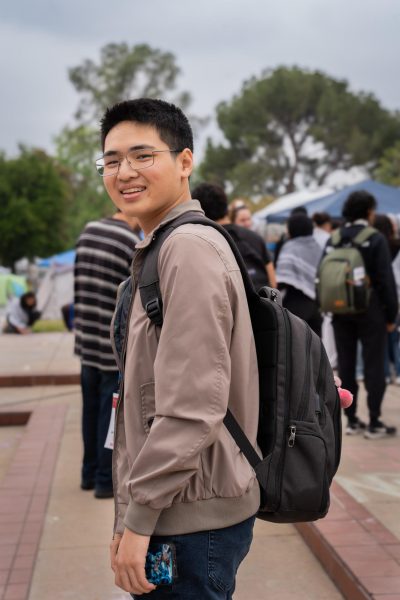
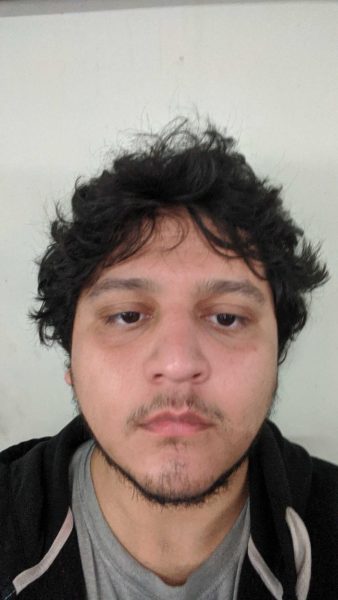
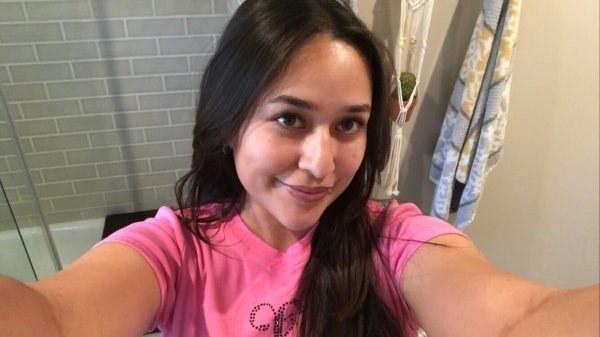
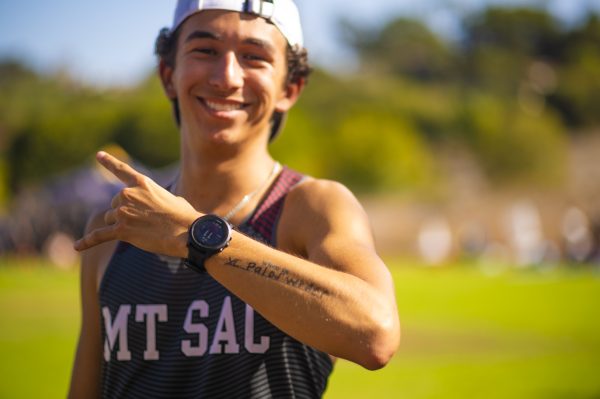
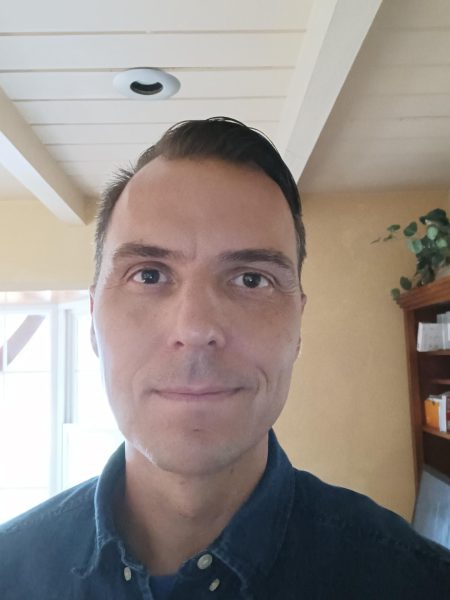
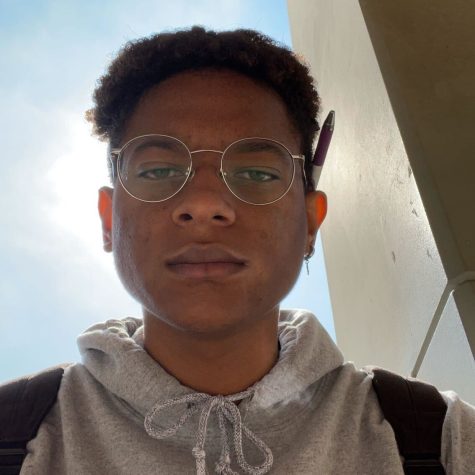
Michael Sarrail • Sep 4, 2024 at 6:53 pm
The fact that she is singled out to be banned from the use of a word … and this is at a college full of adults … is telling. The students seem to need a bit more maturing before they venture into the world of adults.
Brianda • Jan 10, 2024 at 2:24 pm
Ali changed my life for the better. She deserves better. The investigation was so poor, from top to bottom.